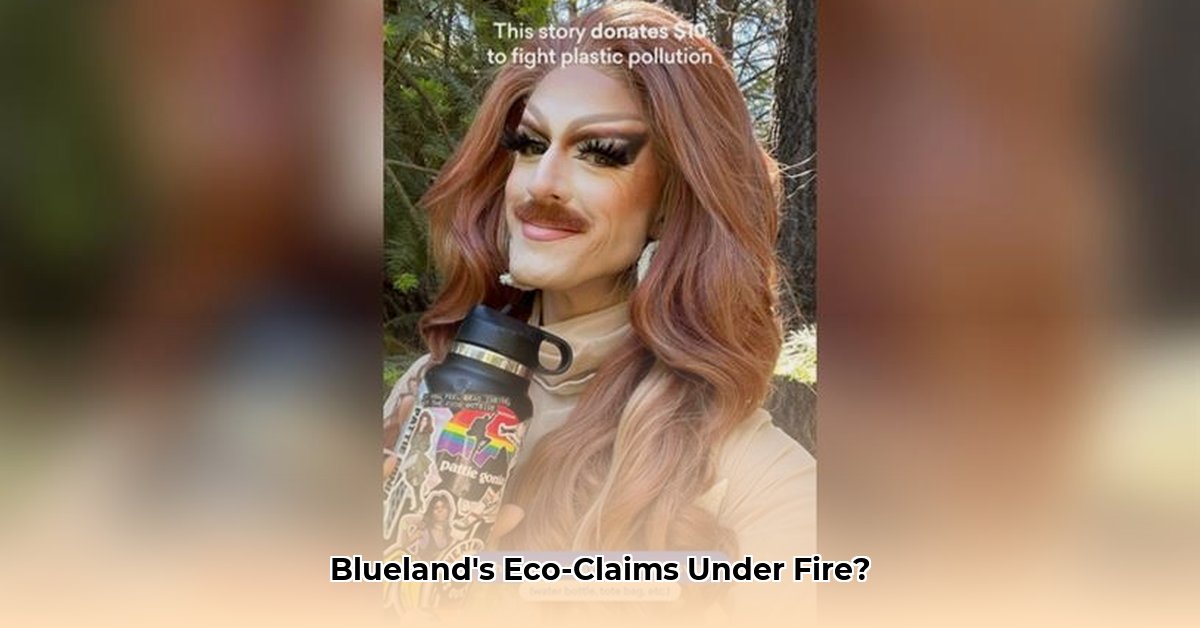
Cleaning Up the Greenwashing: A Critical Analysis of Blueland's Eco-Claims
The eco-friendly cleaning product company, Blueland, recently faced scrutiny from the National Advertising Division (NAD), a self-regulatory body that monitors advertising claims. The NAD's investigation of Blueland's marketing materials revealed a mixed bag of substantiated and unsubstantiated claims, highlighting the complexities of authentically promoting environmentally conscious products. This article examines the NAD's findings, their implications for consumers, and the broader issue of greenwashing in the consumer goods market.
The NAD's review was not a simple pass/fail assessment. Instead, it offered a nuanced evaluation of each of Blueland's environmental claims. This approach underscores the challenges of substantiating sustainability claims—a task often far more complex than simply applying a "green" label. While some claims held up under scrutiny, others fell short, leaving consumers to question the true environmental impact of Blueland's products.
For example, the NAD found that Blueland's claims regarding the biodegradability and compostability of its cleaning tablet wrappers were supported by sufficient evidence. Similarly, their "Forever Bottles" marketing, emphasizing the reusable nature of their bottles, was deemed acceptable, provided Blueland clearly stated the importance of proper care and cleaning for maintaining bottle longevity. But not all claims were given the green light.
The NAD determined that Blueland's assertion that "every piece of packaging...is 100% recyclable" was misleading. The claim failed to adequately highlight the reliance on specific, and often limited, take-back programs run by Blueland itself, making the recyclability dependent on factors outside the control of the average consumer. This highlights a critical point: the term "recyclable"—while seemingly straightforward—can be highly context-dependent, and consumers need to be provided with realistic information about the processes involved. Similarly, direct comparisons to competitors' products suggesting superior cleaning performance or safer ingredients were deemed unsubstantiated by the NAD, absent the provision of concrete, independently verified scientific data.
Blueland's use of vague language, such as "better for your home and our planet," further fueled the NAD's concerns. The ruling emphasized the need for specific, measurable claims supported by concrete data—a key lesson for all companies aiming to promote their products' environmental benefits. Vague terminology, the NAD argued, can lead to misunderstandings and accusations of greenwashing, where environmental benefits are exaggerated or misleadingly presented.
Three Pivotal Points from the Blueland Controversy:
- The Importance of Verifiable Evidence: Companies must have concrete, independently verified data to substantiate all environmental claims.
- The Nuances of "Recyclable": Consumers need clear and accurate information about the recyclability of products, including limitations and access to relevant recycling programs.
- The Danger of Greenwashing: Vague or unsubstantiated environmental claims damage consumer trust and contribute to a problematic practice of greenwashing.
Expert Opinion:
"The Blueland case underscores the need for greater transparency and accountability in the eco-friendly consumer goods market," states Dr. Anya Sharma, Professor of Environmental Marketing at the University of California, Berkeley. "Companies must move beyond vague statements and provide consumers with clear, verifiable information about the environmental impact of their products."
Actionable Steps for Brands and Consumers:
- For Brands: Conduct thorough, independent testing to substantiate all environmental claims; adopt transparent and precise language in marketing materials; proactively comply with FTC Green Guides 1.
- For Consumers: critically evaluate environmental claims; look for independent certifications; support brands committed to transparency and verifiable sustainability.
The Blueland controversy serves as a cautionary tale, highlighting the growing importance of responsible eco-marketing. Both companies and consumers have a crucial role to play in ensuring that "eco-friendly" means exactly what it says. The future of sustainable consumerism relies on honesty, accountability, and a commitment to environmental integrity.